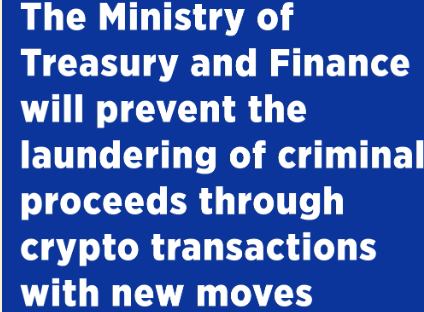Turkey is tightening its grip on the crypto sector with a proposed set of sweeping regulations aimed at curbing money laundering and illicit financial activities, according to a report published June 24 by the state-run Anadolu Agency (AA).
The new rules, led by the Ministry of Treasury and Finance, will require cryptocurrency platforms to collect detailed information about the source and purpose of every transaction. As part of the directive, users must include a minimum 20-character description for each transfer—a move intended to enhance transparency and traceability in crypto dealings.

In cases where the Travel Rule does not apply, the proposed regulations introduce mandatory withdrawal delays: 48 hours for most crypto asset withdrawals and 72 hours for the first-ever withdrawal from an account. These holding periods are designed to give platforms more time to flag suspicious activity before assets leave the system.
To further restrict illicit outflows—particularly those tied to illegal betting and fraud—authorities plan to impose strict limits on stablecoin transfers. Users would be capped at $3,000 daily and $50,000 monthly. However, platforms that fully comply with the Travel Rule, including comprehensive identity verification of both sender and recipient, would be allowed to operate under double these limits.
Speaking with AA, Treasury and Finance Minister Mehmet Şimşek emphasized that the reforms are not intended to hinder legitimate crypto activity.
“We will ensure there is sufficient space for lawful crypto asset operations while taking firm steps to deter misuse,”
he stated.
The ministry also warned of serious consequences for non-compliance. In addition to administrative penalties, platforms may face legal and financial sanctions, including the revocation or denial of operational licenses.
Exceptions to the transfer limits will be granted for transactions related to market making, liquidity provision, and arbitrage, provided that users can verify the source of their funds and such activities are closely monitored by the platforms involved.
Earlier this year, in March, Turkey’s Capital Markets Board (CMB) took a significant step by introducing licensing and operational standards for crypto asset service providers (CASPs), granting the CMB authority over exchanges, wallet services, and custodians.
If you want to read more news articles like this, visit DeFi Planet and follow us on Twitter, LinkedIn, Facebook, Instagram, and CoinMarketCap Community.
“Take control of your crypto portfolio with MARKETS PRO, DeFi Planet’s suite of analytics tools.”






















